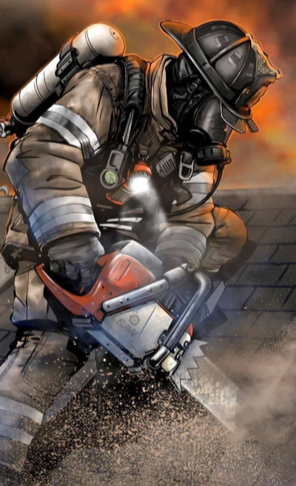Your cart is currently empty!
Firefighters Fight to Prove Cancer Link as Insurance Denials Skyrocket

Firefighters across the country are increasingly faced with a new battle: proving that their work-related exposure to hazardous chemicals caused their cancer, just to receive the insurance coverage they deserve. As reports of firefighter cancers grow at an alarming rate, many departments and individual firefighters are struggling to get their claims approved, with insurance denial rates soaring.
The Growing Cancer Crisis Among Firefighters
Recent studies indicate that firefighters are nearly three times more likely to develop certain types of cancer including lymphoma, leukemia, and testicular cancer compared to the general population. This surge is largely attributed to exposure to carcinogenic toxins like PFAS and other hazardous chemicals that settle on turnout gear and off-gas into their homes.
Despite the mounting evidence, many firefighters find themselves caught in a frustrating legal and financial limbo. The challenge isn’t just battling disease but proving that exposure on the job caused it, a process that can be complex and costly.
The Fight for Recognition
For many, the fight begins long before diagnosis gathering evidence to establish a clear link between their cancer and firefighting duties. This often involves extensive documentation, expert evaluations, and sometimes, decades-long legal battles to demonstrate the direct connection required by insurance companies.
A concerning trend has emerged: insurance denial rates are climbing rapidly. Data from multiple states shows that nearly 40% of firefighters’ claims are being rejected, often citing “pre-existing conditions,” “lack of direct evidence,” or “not enough proof of occupational exposure.”
Why Are Denials Increasing?
Industry experts point to several factors fueling this rise in denial rates:
- Burden of Proof: Insurance companies require irrefutable evidence that the cancer was caused by occupational exposure, often a difficult standard to meet.
- Evolving Definitions: Insurance policies increasingly specify narrow criteria for occupational diseases, leaving many valid claims in limbo.
- Lack of Awareness: Some insurers lack sufficient understanding of the risks firefighters face or how to evaluate related claims properly.
Impact on Heroes and Their Families
This surge in denials has significant consequences. Many firefighters are left fighting to cover their medical expenses and lost wages, often exhausting their savings or relying on family support. Their battles highlight a broader systemic issue: how occupational health risks are valued and protected within the insurance industry.
A Call for Change
Advocates argue that the increasing denial rates underscore the urgent need for reforms. Firefighters demand clearer, fairer policies that recognize the unique hazards of their jobs and provide support when illnesses occur. Some states are already exploring legislation to strengthen workers’ compensation protections, but widespread change remains slow.
Moving Forward
As the fight to prove the link between firefighting and cancer gains momentum, the focus turns to the importance of proper protective gear, toxin containment, and improved safety protocols. Until then, many firefighters continue to battle for recognition and fair treatment fight that underscores the critical need to support those who protect us all.
Rob R.
